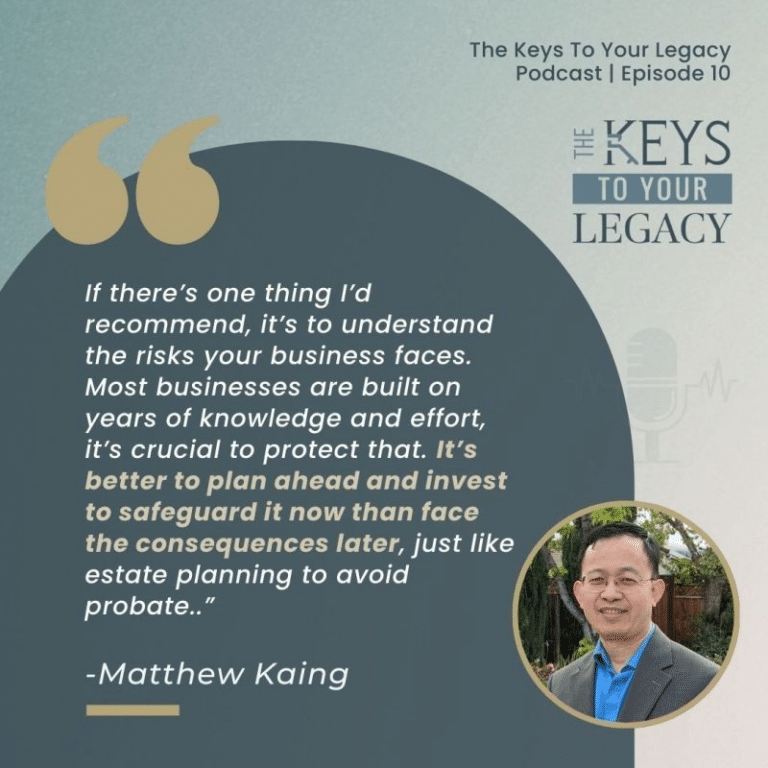What a Genocide Survivor Can Teach Law Firms About Cybersecurity
In a compelling episode of The Keys to Your Legacy podcast, estate planning attorney Elijah Keyes sat down with Matthew Kaing, founder of eSudo Technology Solutions, to explore how life experiences—from surviving the Khmer Rouge in Cambodia to helping Silicon Valley law firms—shaped Matthew’s mission to protect small businesses from cyber threats.
With over 30 years of IT and cybersecurity experience and co-author of the bestselling book Managing Your Business Risk in the Cybersecurity Minefield, Matthew shares powerful insights every law firm should hear.
A Personal Legacy: From Survival to Cybersecurity
Matthew’s story begins with a deeply personal journey. As a survivor of the Khmer Rouge regime, he grew up with a profound understanding of what it means to lose everything—family, freedom, and security. This experience gives him a unique lens through which he views cybersecurity.
“When you’ve had everything taken from you,” Matthew shared, “you learn to value safety and preparedness. That’s why I see cybersecurity not as a luxury, but a basic form of protection—like food, shelter, or a locked door.”
Cybersecurity: A Law Firm’s Digital Security System
Many small law firms think cybersecurity is optional. Matthew challenges that mindset.
“Would you leave your office unlocked at night?” he asked. “Then why would you leave your data unprotected?”
He explains cybersecurity in relatable terms—comparing digital protection to traditional physical security. Firewalls, backups, endpoint monitoring, and multi-factor authentication (2FA) aren’t just tech tools—they’re your firm’s digital locks, alarms, and safes.

Why Your Employees Are the Front Line of Defense
One of the most actionable takeaways from the interview: cybersecurity isn’t just about the tech. It’s about your team.
Matthew emphasized that employee awareness is often the weakest link—and greatest opportunity. He shared stories of law firms that fell victim to phishing scams, often due to a single careless click.
The solution? Ongoing training and real-time simulations.
“We teach your team what to look for and how to respond—before a hacker gets the chance,” he explained.
Small Law Firms Are Big Targets
Contrary to popular belief, hackers don’t just go after big firms. In fact, Matthew warns that small and mid-sized law firms are increasingly at risk.
“They have sensitive data, fewer protections, and limited resources—making them low-hanging fruit for cybercriminals,” he said.
That’s why eSudo focuses on law firms with 5 to 30 employees. These firms are big enough to have valuable data and legal responsibilities, but often lack dedicated IT departments.
Final Thought: Cybersecurity Is About Legacy
Elijah wrapped up the interview with a reflection on legacy—and how estate planning attorneys help families preserve theirs.
“Matthew, you help law firms protect their clients’ legacies by defending their systems and data. That’s powerful.”
Indeed, just as estate planning secures a family’s future, cybersecurity ensures that law firms can fulfill that mission—without disruption, reputational damage, or regulatory risk.
Want to hear the full episode?
🎧 Listen to The Keys to Your Legacy Podcast with Matthew Kaing

